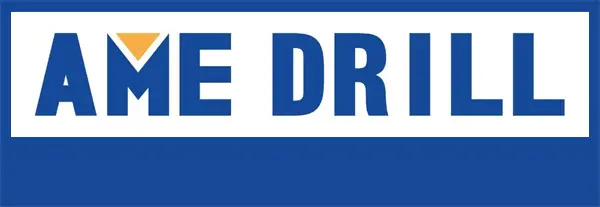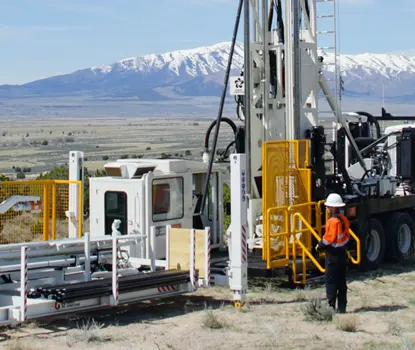Introducción a los conos para brocas
En el mundo de la tecnología de perforación, pocas herramientas son tan versátiles y esenciales como el cono de broca. Estas brocas especializadas, que se caracterizan por sus superficies de corte cónicas, están diseñadas para realizar todo tipo de tareas, desde las delicadas tareas de precisión hasta la penetración agresiva en roca en la exploración de petróleo y gas. Para los profesionales y aficionados al bricolaje de Estados Unidos, comprender las capacidades y ventajas de las brocas cónicas es clave para seleccionar la herramienta adecuada para el trabajo, garantizando eficiencia, precisión y longevidad en una amplia gama de aplicaciones.
A cono de broca es un tipo de herramienta de perforación que presenta una forma cónica equipada con elementos cortantes. Estos elementos pueden ser fijos (como en las brocas cónicas o escalonadas) o giratorios (como en las brocas cónicas de rodillos). La función principal de este diseño es concentrar la fuerza de corte en un punto central, lo que facilita la penetración en los materiales y la creación de orificios más precisos. Esto las hace indispensables en campos que requieren gran precisión, como la metalurgia, la fabricación y la exploración geológica, donde los orificios limpios y exactos son fundamentales para la integridad estructural y el rendimiento. .
Nunca se insistirá lo suficiente en la importancia de los conos de broca en los trabajos de precisión. Su geometría única permite control superior y reducción de la marcha (la tendencia de una broca a desviarse del punto de inicio previsto), que es un problema común con las brocas helicoidales estándar. Esto es especialmente valioso cuando se trabaja con metales duros o materiales compuestos, donde la precisión es primordial para evitar errores costosos o daños en el material. Al aprovechar el diseño cónico, estas brocas proporcionan una capacidad de autocentrado que aumenta la precisión y mejora la eficacia general del flujo de trabajo.
Tipos de conos para brocas
Los conos de broca se presentan en varios diseños, cada uno adaptado a materiales y aplicaciones específicos. Comprender las diferencias entre estos tipos es crucial para seleccionar la broca adecuada para su proyecto.
Broca cónica
Brocas cónicas, a menudo denominadas brocas escalonadas, presentan un aumento gradual del diámetro desde la punta hasta la base. Este diseño les permite crear agujeros de múltiples tamaños con una sola broca, lo que las hace increíblemente versátiles para trabajos de chapa, fontanería y electricidad. La geometría cónica garantiza que la broca engrane suavemente en el material, reduciendo el riesgo de enganches o desgarros en materiales finos. Esto es especialmente beneficioso para taladrado de precisión en sistemas de calefacción, ventilación y aire acondicionado o reparaciones de automóviles, donde los orificios limpios y sin rebabas son esenciales para el correcto ajuste de los tornillos y la integridad de las juntas. .
Cono-Broca perfilada
Brocas cónicas se caracterizan por una verdadera forma cónica con flautas o filos de corte en espiral alrededor del cuerpo. Estas brocas son ideales para retirada de escombros y disipación del calorLa forma cónica permite un corte agresivo con el mínimo esfuerzo. Su forma cónica permite un corte agresivo con el mínimo esfuerzo, lo que las convierte en las favoritas en la fabricación y construcción de alta resistencia. Su capacidad para mantener una punta afilada garantiza posiciones de inicio precisas, lo que es vital para aplicaciones como la fabricación de joyas o el trabajo intrincado de la madera, donde incluso pequeñas desviaciones pueden comprometer el producto final.
Broca cónica para metal
Específicamente diseñado para el trabajo del metal, brocas de cono para metal suelen estar fabricadas con acero rápido (HSS) o carburo y a menudo llevan revestimientos de titanio o cobalto para aumentar su durabilidad. Estas brocas están diseñadas para soportar las altas temperaturas y presiones asociadas al taladrado de metales. Su geometría cónica ayuda a reducir la fricción y prevención del endurecimiento del trabajoun problema habitual al taladrar acero inoxidable o aluminio. Esto las hace indispensables en industrias como la aeroespacial y la automovilística, donde la precisión y la longevidad de las herramientas son fundamentales. .
Tabla: Comparación de los tipos de conos de broca
| Tipo | Uso principal | Características principales | Materiales ideales |
|---|---|---|---|
| Broca cónica | Orificios multidiámetro | Broca cónica | Chapas metálicas, plásticos finos |
| Fresa cónica | Perforación profunda | Flautas en espiral, eliminación eficaz de residuos | Madera, materiales compuestos, metales blandos |
| Broca cónica para metal | Taladrado de metales duros | Recubrimientos resistentes al calor, geometría de corte agresiva | Acero inoxidable, hierro fundido |
| Broca de cono de rodillo | Explotación de petróleo y gas | Conos giratorios con dientes o insertos, alta durabilidad | Roca, hormigón, estratos duros |
Ventajas de utilizar una broca cónica
El diseño exclusivo de las brocas cónicas ofrece varias ventajas convincentes que las convierten en la opción preferida para trabajos de precisión en diversos sectores.
Precisión mejorada
El diseño cónico de estas brocas proporciona autocentrado naturalque es crucial para lograr una colocación precisa de los orificios. Esto es especialmente importante en aplicaciones como el taladrado de placas de circuitos, donde incluso las desviaciones de micras pueden provocar fallos eléctricos. La punta afilada garantiza que la broca se mantenga en el objetivo sin "caminar", lo que reduce la necesidad de realizar orificios piloto y ahorra tiempo. Además, el encaje gradual de los filos de corte permite un funcionamiento más suave y un mejor control, especialmente en situaciones de taladrado manual. Esta precisión es aún mayor en brocas cónicasque permiten a los operarios crear orificios de tamaño uniforme sin cambiar las brocas, lo que agiliza el flujo de trabajo y reduce los márgenes de error. .
Versatilidad de materiales
Las brocas de cono están diseñadas para trabajar en una amplia gama de materiales, desde maderas blandas hasta metales endurecidos. Por ejemplo, brocas de cono de rodillo utilizadas en la prospección de petróleo y gas pueden penetrar con facilidad en formaciones rocosas abrasivas como la arenisca y la caliza, gracias a sus conos giratorios equipados con dientes o insertos endurecidos. . Del mismo modo, las brocas cónicas para metalurgia pueden trabajar con todo tipo de materiales, desde aluminio blando hasta resistentes aleaciones de titanio. Esta versatilidad reduce la necesidad de utilizar varias brocas especializadas, lo que ahorra tiempo y dinero a los profesionales de la construcción, la industria y la geología.
Durabilidad mejorada
El diseño estructural de las brocas de cono suele incorporar consejos reforzados y materiales robustos que mejoran su vida útil. Por ejemplo, las brocas de cono de rodillo utilizadas en operaciones de perforación incorporan tecnologías avanzadas de sellado y rodamientos duraderos que soportan presiones y temperaturas extremas, garantizando un rendimiento fiable en entornos difíciles. En metalurgia, las brocas de cono con puntas de carburo mantienen su filo durante más tiempo que las brocas estándar, lo que reduce el tiempo de inactividad para sustituirlas y afilarlas. Esta durabilidad se traduce en menores costes a largo plazo y mayor productividad, lo que las convierte en una opción rentable para aplicaciones de uso intensivo.
Brocas de cono de rodillo
Brocas de cono de rodillo representan una categoría especializada de conos de broca utilizados principalmente en la industria del petróleo y el gas para perforar formaciones rocosas. Estas brocas tienen dos o más conos giratorios equipados con dientes o insertos que trituran y rompen la roca al girar la broca. Su diseño permite penetración eficaz en la roca y longevidad en condiciones de perforación difíciles, lo que las convierte en un elemento básico en operaciones tanto en tierra como en alta mar. .
Características de las brocas cónicas de rodillo
Las brocas de cono de rodillo están diseñadas con múltiples conos que giran sobre cojinetes, cada uno equipado con dientes endurecidos o insertos de carburo de tungsteno. Los dientes tienen varias formas y tamaños optimizados para distintos tipos de roca: dientes largos y afilados para formaciones blandas y dientes más cortos y reforzados para estratos duros y abrasivos. Los cojinetes son un componente crítico, a menudo sellados con sistemas avanzados para evitar la contaminación por fluidos de perforación y residuos. Por ejemplo, algunas brocas cónicas de rodillos de alta calidad incorporan juntas metálicas y cojinetes lubricados que pueden soportar altas temperaturas y presiones, lo que aumenta su durabilidad y fiabilidad en operaciones de perforación profunda. . Además, el diseño hidráulico de estas brocas garantiza un flujo eficaz del fluido de perforación para refrigerar los cortadores y eliminar los recortes de roca, lo que mejora aún más el rendimiento.
Aplicaciones de las brocas de cono de rodillo
Las brocas cónicas de rodillo son indispensables en el sector energético para perforar pozos de petróleo, gas y geotermia. Son especialmente eficaces en formaciones estratificadas donde la dureza de la roca varía, ya que su diseño les permite adaptarse a condiciones cambiantes sin comprometer su rendimiento. Más allá de la exploración energética, también se utilizan en perforación de pozos de agua, minería y proyectos de construcción que requieren una penetración profunda en roca dura. Su capacidad para soportar cargas de alto impacto y condiciones abrasivas las hace ideales para estas exigentes aplicaciones. Los avances recientes, como el desarrollo de brocas de cuatro conos para entornos de roca dura, han ampliado aún más su uso en la prospección geológica y la exploración geotérmica, donde son esenciales altos índices de recuperación de testigos.

Conclusión
Los conos de broca son una notable fusión de principios ancestrales e ingeniería moderna, que ofrecen una precisión, versatilidad y durabilidad sin parangón. Desde el delicado arte de la joyería hasta las duras exigencias de la prospección de petróleo y gas, estas herramientas resultan indispensables para los profesionales que buscan eficacia y precisión. En capacidad de autocentrado de brocas cónicas, el versatilidad de materiales de bits en forma de cono, y el rendimiento sólido de brocas de cono de rodillo responden a necesidades específicas, por lo que existe una broca de cono optimizada para prácticamente cualquier tarea.
Al elegir un cono de broca, tenga en cuenta el material con el que va a trabajar, la precisión requerida y el entorno operativo. Por ejemplo, Taladro Ame brocas cónicas son ideales para materiales finos y orificios de varios diámetros, mientras que brocas de cono de rodillos destacan en la perforación de roca dura. Invertir en brocas de alta calidad con características avanzadas como revestimientos resistentes al calor o cojinetes sellados puede mejorar significativamente el rendimiento y la longevidad, proporcionando valor a largo plazo.
A medida que la tecnología de perforación sigue evolucionando, podemos esperar más innovaciones en materiales, revestimientos y diseños que ampliarán los límites de lo que estas herramientas pueden lograr. Tanto si es usted un aficionado al bricolaje como un profesional del sector, comprender y aprovechar las ventajas de los conos para brocas elevará sin duda su trabajo a nuevos niveles de precisión y eficiencia.


